One of the most relatable tweets I’ve seen recently is the one where the person said ADHD is the new OCD because people are self-diagnosing and treating it like a personality trait.

It’s easy to cherry-pick a relatable symptom of a medical condition, and say you have that condition. A lot of people do it. But with ADHD, it’s much deeper. ADHD isn’t just forgetting things, getting distracted easily, or being hyper. It’s a neurodevelopmental disorder. It’s a disorder because it affects an individual’s functioning one way or the other — socially, occupationally, or just generally in life.
As someone with ADHD, I know from experience the extent to which the disorder can disrupt your life. But before I get into that, I’d like to quickly —in the simplest way possible —explain ADHD to you from a professional’s explanation.
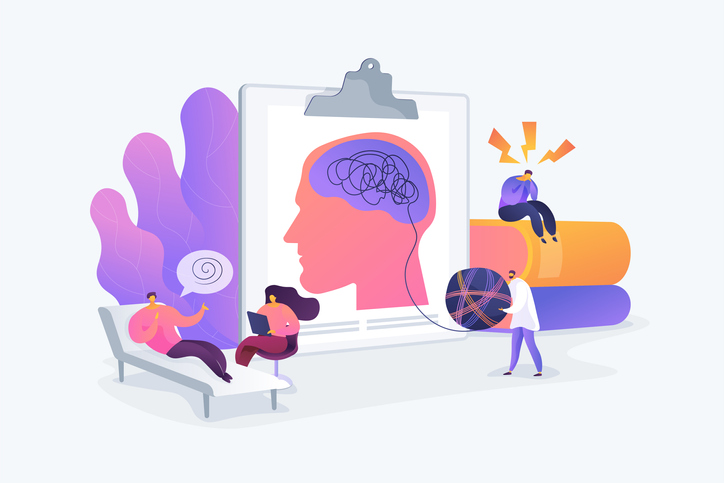
What is ADHD?
Attention Deficit Hyperactivity Disorder (ADHD) is a disorder that consists of a combination of persistent problems, such as difficulty sustaining attention, hyperactivity, and impulsive behaviour. There are three types of ADHD —inattentive, hyperactive or impulsive, and a combination of both.
Inattentive ADHD
Inattentive ADHD isn’t what most people picture when they think of ADHD. People with inattentive ADHD have trouble staying focused, get distracted easily, and make “careless” mistakes because they have trouble paying attention to details. They also have trouble organising or finishing things. There are nine symptoms of this type of ADHD:
- Lack of attention to details
- Difficulty following instructions
- Frequent daydreaming
- Difficulty sustaining mental effort
- Often misplacing things
- Short attention span
- Forgetfulness
- Trouble staying focused
- Difficulty following through on instructions or tasks
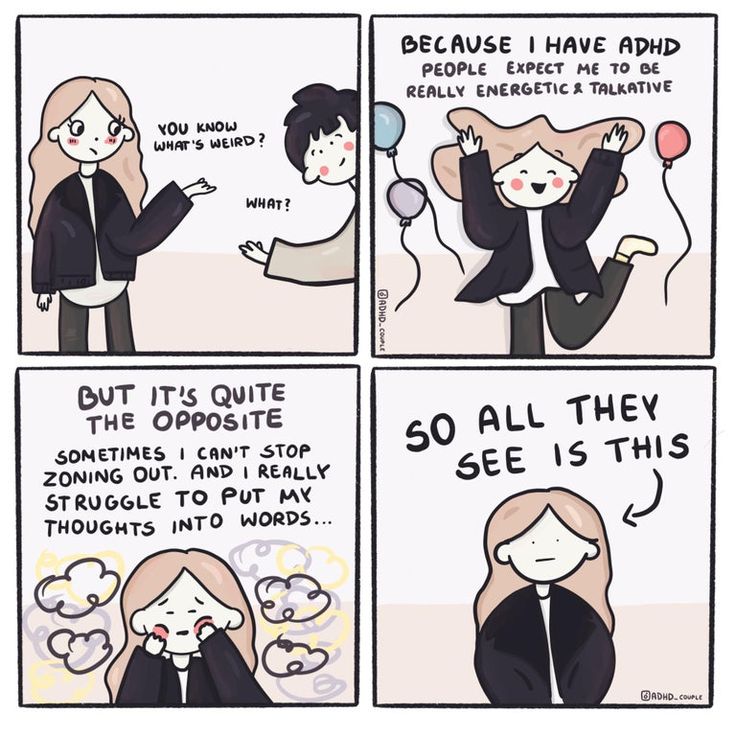
Hyperactive-Impulsive ADHD
People with hyperactive-impulsive ADHD have trouble staying still. They often squirm, fidget, and they hardly ever seem to slow down. They feel the need for constant movement, and they struggle to stay seated.
The nine symptoms of hyperactive-impulsive ADHD include:
- Inability to sit still
- Constant fidgeting
- Often on the go, acting as if driven by a motor
- Excessive physical movement
- Excessive talking
- Impulsiveness
- Difficulty waiting or taking turns
- Frequent interruptions during conversations
- Blurting out answers out of turn
If a person has the combination type of ADHD, it means that their symptoms don’t exclusively fall within the inattention or hyperactive-impulsive behaviour. They exhibit a combination of symptoms from both types.
An Important thing to note:
This is where it kind of gets interesting, Being diagnosed with ADHD goes beyond just the symptoms. There are certain conditions that have to be met. :
- If you’re younger than 17 years, you have to present at least six of these symptoms. If you’re older than 17 years, you need to present at least five of the symptoms.
- Several of these symptoms have to be consistently present for at least 6 months.
- Several of the symptoms have to be present in two or more settings — at home, school, or work, with friends, relatives, etc.
- Several of these symptoms were present before the age of 12 years.
- There is evidence that the symptoms interfere with your quality of life.
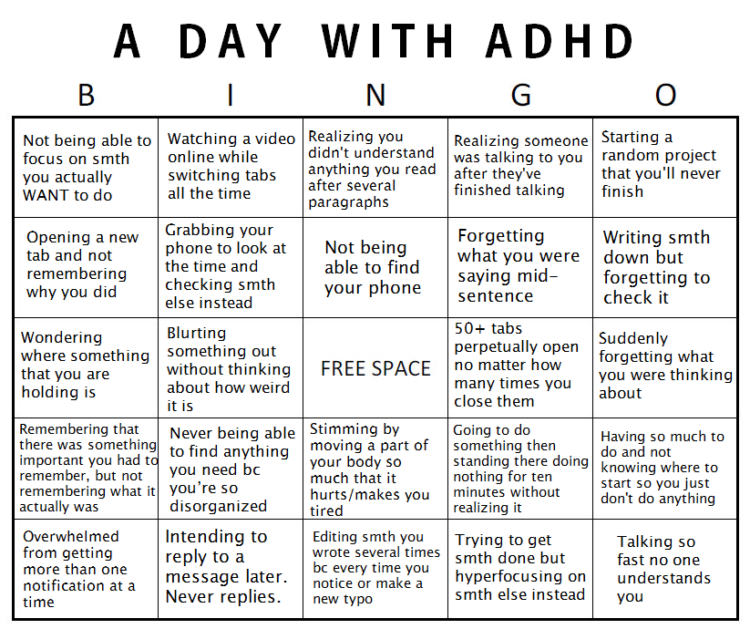
My struggle with ADHD
Trust me, ADHD isn’t cool. It isn’t a fun, quirky thing to have. It’s a serious disorder that can affect your life. I have inattentive ADHD, which means I struggle with staying focused. As someone with a professional life, this is a problem.
I do a lot of my work at the last minute. A lot of the time, this happens because I get distracted while working. When I say I get distracted, I mean, I pick up my phone every five minutes. I mean, I fall into rabbit holes quite often and struggle to get out. I mean that the longest time I can stay focused on a task is ten minutes before I get bored, overwhelmed, or distracted by something random, or before I start daydreaming. Sometimes, the reason I leave things until the last minute is that the fast-approaching deadline and the immediacy of the negative consequences that will follow if the deadline isn’t met, help me focus and complete the task.
I also struggle with inattention to detail. As a writer, you can imagine how bad that sounds. Many times I’ve been seen as careless, stubborn and lazy because it seemed like I just didn’t want to get better at my work, or I didn’t want to work at all, when the truth is, I’m trying really hard.
These are some of my basic daily struggles. I can go on and tell you about how I get overwhelmed by a simple to-do list. Or how I sometimes get ADHD task paralysis, which is when I desperately need to get started on something, but everything in me resists it. There’s so much I go through that I wish I could tell you, but we won’t leave here.

The struggles of someone with hyperactive-impulsive ADHD
I spoke with someone diagnosed with hyperactive-impulsive ADHD, and she told me about how one of the major struggles she has is how fast she loses interest in things. She’d get excited about certain ideas and projects in the beginning, but along the line, interest would fade and she’d move on to the next thing. And this also happens at work. “If I’m not working on a work task within ten minutes, I’m going to lose interest in it and forget about it. Writing to-do lists just sucks! They give me so much anxiety, and they make me not even want to start on any of the tasks I have to do”, says June. Sometimes, she has a million thoughts running through her head. Other times, she doesn’t have a single thought. “If I don’t make a decision on impulse, it becomes a whole thing where I keep forgetting or procrastinating, and it just becomes a whole mess.”
She also mentioned that she can’t sit in one place for more than ten minutes, and this affected her a lot in school, especially in class. Another thing she mentioned was how she’d make irrational decisions. “I’d be crazy tired, but when people hit me up to go partying, I’d immediately say yes without thinking. Stuff like this happens in every area of my life. It’s even worse when you’re feeling negative emotions. You have so much energy and so many emotions to release that you end up making irrational decisions that can affect you and your relationships. “
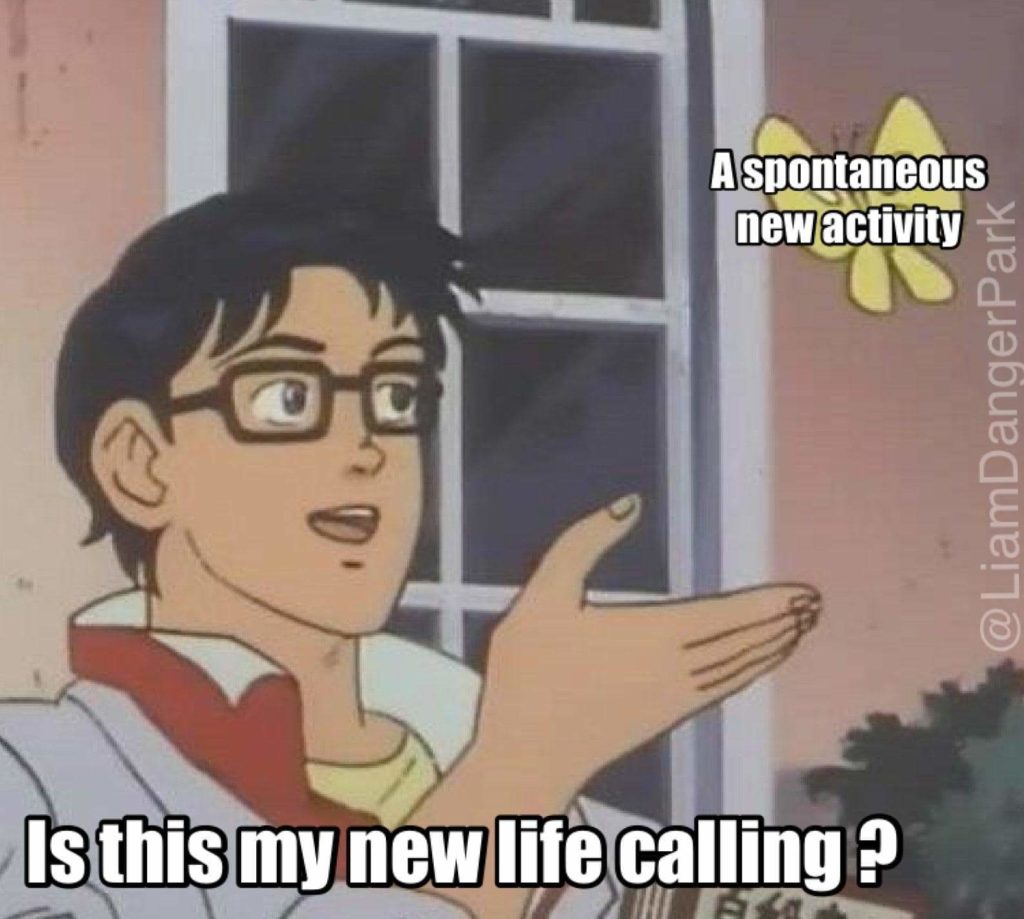
How can ADHD affect a person’s work-life?
One of the major struggles a lot of people with ADHD face is working with companies that aren’t educated about things like this. They end up working with employers who don’t understand what it means to have staff that has ADHD. People with ADHD then end up having to compete at the same level with people who aren’t going through what they’re going through, and working with bosses who don’t understand their condition. Many times, these bosses can’t seem to understand that people with ADHD might function differently than their colleagues.
People with ADHD can be seen as lazy, oppositional, disruptive, disorganised, annoying, disrespectful, careless, always making excuses, etc. And this happens because people don’t have the right education about ADHD.
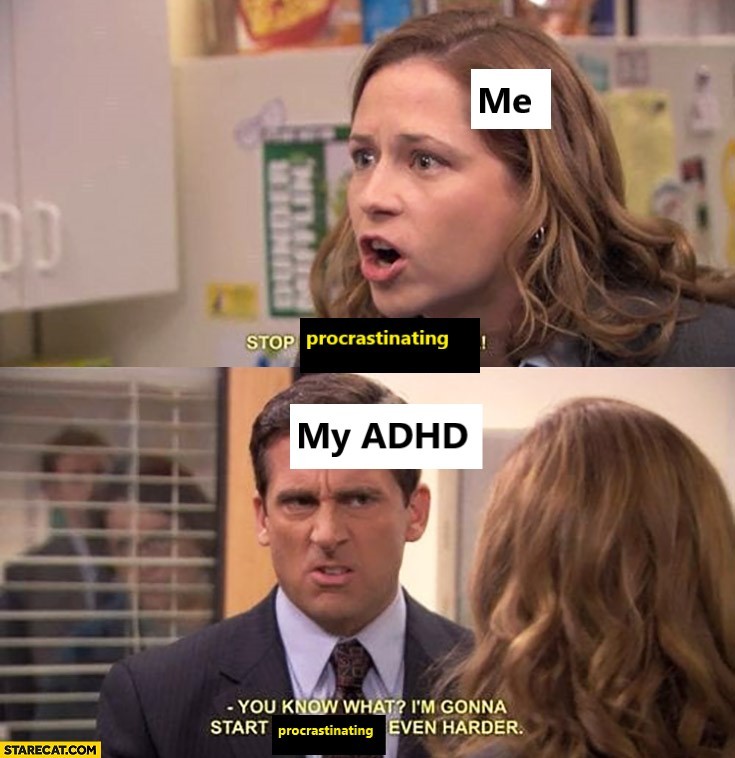
Knowing if you have ADHD
The sad part is that there are people with ADHD who don’t know they have ADHD. If you can remotely relate to any of these things that have been said here, I suggest you get screened. I 100% recommend Nguvu Health. They recently released a free screening for people who suspect they have ADHD. All you have to do is download the app, sign up, click on “Free assessment,” scroll down to the Adult ADHD screening session, and begin your assessment. Once you take the assessment and your results show that there’s a chance you might have ADHD, you’ll have the option to speak to a therapist if you’d like to go further. It’s important that, as someone with ADHD, you get the necessary support and help you require, and this starts with therapy.
If you’d like to educate yourself about ADHD, either to help yourself or a friend, colleague, or employee, there are many resources online that can help you.





